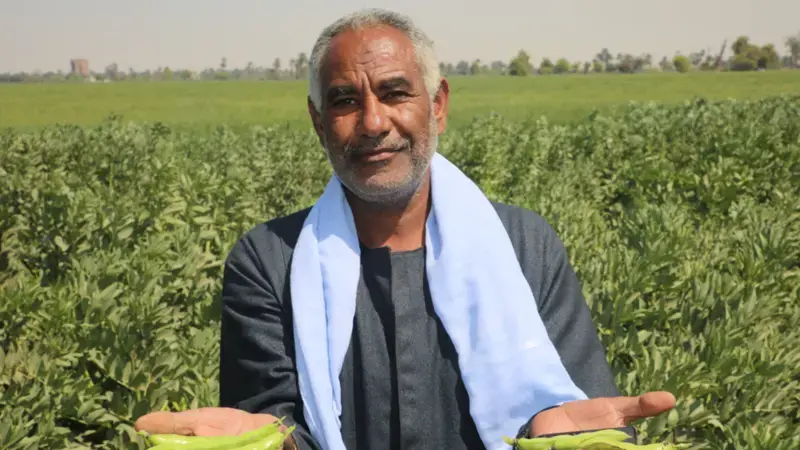Could ancient seeds from the arctic ice be key to enhancing food security in Egypt?

On February 22 2017, The International Center for Agricultural Research in the Dry Areas (ICARDA) deposited more than 15,000 samples from its seed collection as safety duplications for eternal safekeeping in the ice of an arctic vault on the island of Svalbard. The seed deposit ensures that Egypt – and other countries – can always benefit from the plant genetic resources that ICARDA’s vital seed collection provides, as the seeds will be safely stored in the vault – forever.
“We are demonstrating today that we can rely on our genebanks and their safety duplications, despite adverse circumstances, so we can get one step closer to a food secure world,” said Mr. Aly Abousabaa, ICARDA Director General during the deposit ceremony.
ICARDA holds in trust one of the world’s largest and most unique collections of genetic plant material with a total of 153,000 different samples of landraces and wild relatives from the ‘Fertile Crescent’ in Western Asia, the Abyssinian highlands in Ethiopia, and the Nile Valley. Many plants are now extinct in their natural habitats.
The collection’s germplasm could become a key to developing new crops for Egypt’s future - crops, which could adapt to the many challenges posed by climate change: heat, drought, water scarcity, salinity, and the emergence of new pests and diseases. The ICARDA genebank offers a huge potential to find solutions to the ever-increasing challenges in Egypt where the gap between agricultural productivity and population growth is an imminent threat to livelihoods and food security.
For over 5,000 years, agriculture has served as the foundation of Egypt’s economy. Farmers have helped create a civilization based on cultivating land along the Nile River, profoundly shaping the country’s landscape. ICARDA stores the germplasm of those ancient plants, which were used by farmers during the earliest known crop domestication practices.
As today’s commercial crop seed industry concentrates its efforts on a relatively narrow genetic base, these ancient materials from the ICARDA collection offer immeasurable value both as public goods and as inputs into future research for crop development in Egypt.
Despite improvements in climate-smart technologies and sustainable land management practices, Egypt’s agricultural sector is facing serious challenges that threaten its ability to produce sufficient food for its growing population. Egypt depends on imports to achieve food security: the country relies on the global market for approximately 60 percent of its food needs.
In its Strategy for Sustainable Agricultural Development Towards 2030, the Egyptian government has outlined how to achieve self-sufficiency in cereals. In 2017 alone, the strategy is targeting an annual agricultural growth rate of 4.1% for major cereals, and continuing a land reclamation program, which aims at 150,000 feddans annually.
ICARDA is working together with the Egyptian government to promote the adoption of newly developed climate-resilient crop varieties. ICARDA’s breeding outcomes include high-yielding wheat varieties that are resistant to debilitating rust diseases. The varieties were successfully planted in the wheat-producing Al-Shakira Governorate. Introduced alongside new raised-bed technologies and improved agronomic practices, participating farmers adopting these varieties in Al-Sharkia have witnessed successive yield increases in recent years: 29 percent in 2010/11, 22 percent in 2011/12, 25 percent in 2012/13, and 22 percent in 2013/14.
The ICARDA wheat varieties have been developed under the Enhancing Food Security in Arab Countries initiative, supported by the Arab Fund for Economic and Social Development (AFESD), the Kuwait Fund for Arab Economic Development (KFAED), the Islamic Development Bank, and the OPEC Fund for International Development.
The International Center for Agricultural Research in the Dry Areas (ICARDA) is a global agricultural research organization working with countries in the world’s dry and marginal areas to deliver sustainable systems solutions that increase productivity, improve rural nutrition, and strengthen national food security. ICARDA is a member of CGIAR, a group of 15 international agricultural research centers that produce public goods science.
